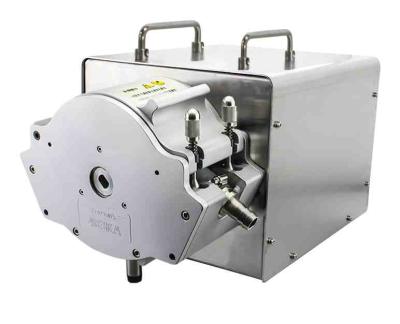Categories
Tags
-
#Peristaltic Pumps
#Micro Peristaltic Pump
#Peristaltic Pump Head
#Straight Tubeline Peristaltic Pumps
#Peristaltic Pump Tube
#Peristaltic Pump
#Cummins Engine
#Silicone Tube for Peristaltic Pump
#Why Multichannel Peristaltic Pumps Are Essential for Laboratory Automation
#Technologies For Jewelry
#Silicone Tubing Peristaltic Pumps
#OEM Peristaltic Pumps
#Silicone Tube for Your Peristaltic Pump
#Handheld Sampling Pump
#The Benefits of Using Peristaltic Pumps in Food and Beverage Applications
#Medical Grade Silicone Tubing
#Large Peristaltic Pumps
#Cummins Engine Cylinder Head
#Industrial Peristaltic Pump
#Low Flow Peristaltic Pumps
#Peristaltic Pump Motor
#Industrial Peristaltic Pumps
#Peristaltic Pumps in Industrial Washing
#3D Printed Peristaltic Pump
#Peristaltic Pump Silicone Tube
#Multichannel Peristaltic Pump
Archives
Industrial Peristaltic Pumps: Efficient Solutions for Modern Fl
-
Industrial Peristaltic Pumps: Efficient Solutions for Modern Fluid Handling
In the world of industrial fluid handling, precision, reliability, and safety are critical. Among the various pump technologies available, industrial peristaltic pumps stand out as versatile and highly efficient solutions for transferring a wide range of liquids. From chemical processing to pharmaceuticals, these pumps are revolutionizing the way industries manage fluids.
What Are Industrial Peristaltic Pumps?
Industrial peristaltic pumps, also known as tube pumps or hose pumps, operate by compressing a flexible tube or hose to push liquid through the system. Unlike conventional pumps, the fluid never comes into contact with moving mechanical parts, making peristaltic pumps ideal for sensitive, corrosive, or viscous fluids. This unique design ensures hygienic handling, minimizes contamination, and allows for accurate metering.
Key Advantages of Industrial Peristaltic Pumps
Non-Contaminating Pumping
Since the liquid flows only within the flexible tubing, industrial peristaltic pumps prevent contamination and cross-contamination. This makes them perfect for food processing, pharmaceuticals, and biotech applications.Ability to Handle Harsh Fluids
Corrosive chemicals, abrasive slurries, and high-viscosity liquids can be pumped without damaging the pump. The flexible tubing can be customized to resist chemical attack, prolonging pump life.Accurate Flow Control
Industrial peristaltic pumps are ideal for precise dosing and metering. By adjusting the pump speed or using a stepper motor control, operators can achieve exact flow rates, which is essential for chemical batching, lab testing, and production processes.Low Maintenance
With minimal moving parts outside the tubing, wear and tear are limited. Maintenance typically involves replacing the tubing periodically, simplifying upkeep and reducing downtime.Self-Priming and Dry-Running Capabilities
Peristaltic pumps can self-prime and run dry for short periods without damage, offering flexibility in applications where suction lift or intermittent operation is needed.Common Applications
Industrial peristaltic pumps find usage across diverse industries:
Chemical Industry: Handling acids, alkalis, and reactive fluids safely.
Water Treatment: Accurate dosing of coagulants, chlorine, or flocculants.
Food & Beverage: Hygienic pumping of syrups, dairy, juices, and flavorings.
Pharmaceuticals & Biotechnology: Sterile fluid transfer for lab or production processes.
Mining & Slurry Handling: Abrasive or high-solid-content liquids can be transferred efficiently.
Choosing the Right Industrial Peristaltic Pump
When selecting an industrial peristaltic pump, consider the following factors:
Fluid Properties – Viscosity, abrasiveness, and chemical compatibility with tubing.
Flow Rate Requirements – Determine whether a low-flow precision pump or a high-volume pump is needed.
Temperature Range – Ensure the tubing and pump components can handle the fluid’s operating temperature.
Control Options – Manual speed control or automated systems with digital monitoring may be required.
Conclusion
Industrial peristaltic pumps offer a unique combination of precision, safety, and adaptability, making them an indispensable tool in modern fluid management. Whether you need accurate chemical dosing, hygienic food processing, or safe handling of corrosive liquids, these pumps deliver reliable performance while minimizing maintenance and contamination risks.
For industries looking to optimize fluid handling, investing in the right peristaltic pump technology can improve efficiency, reduce costs, and ensure long-term reliability.
